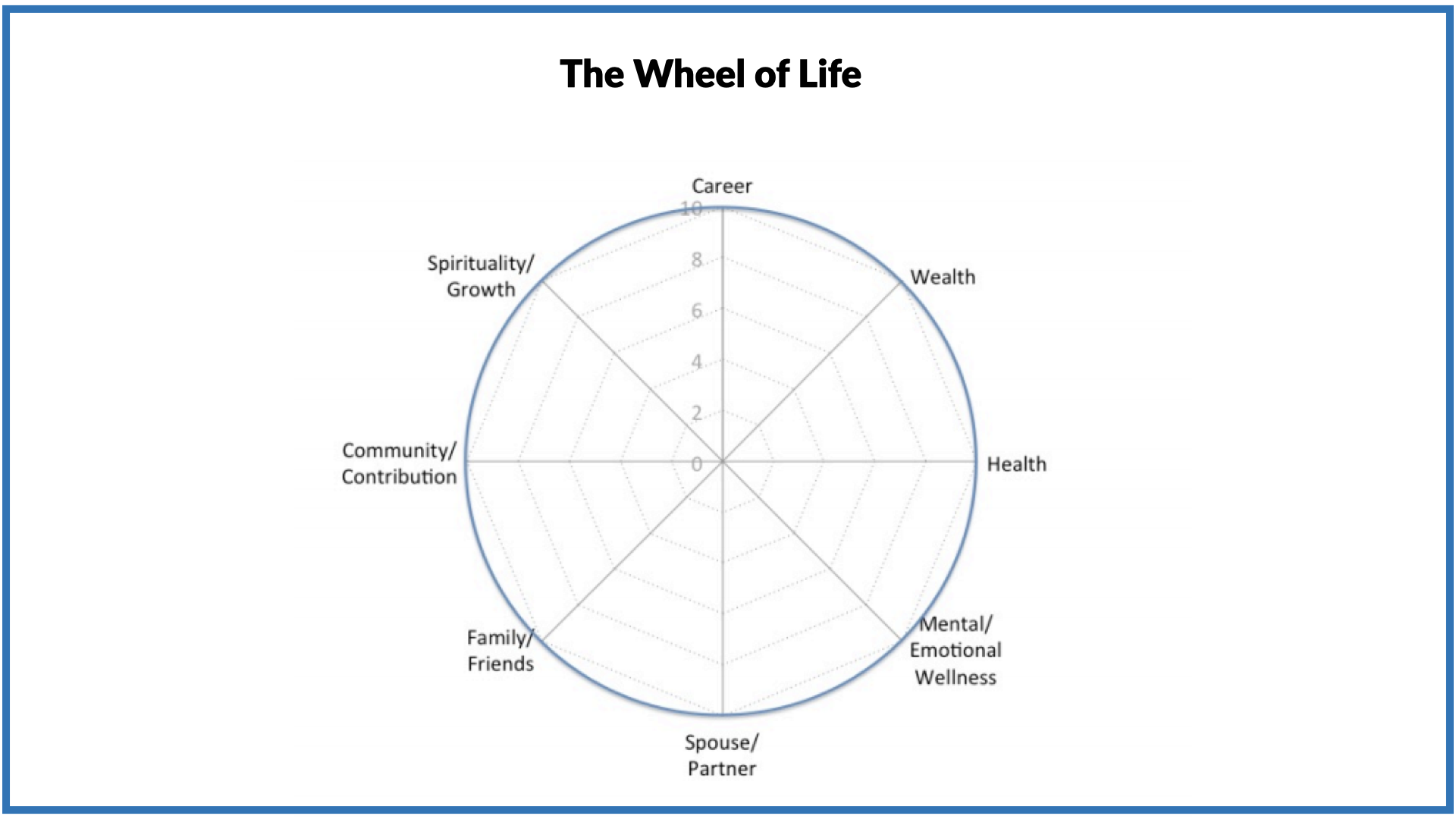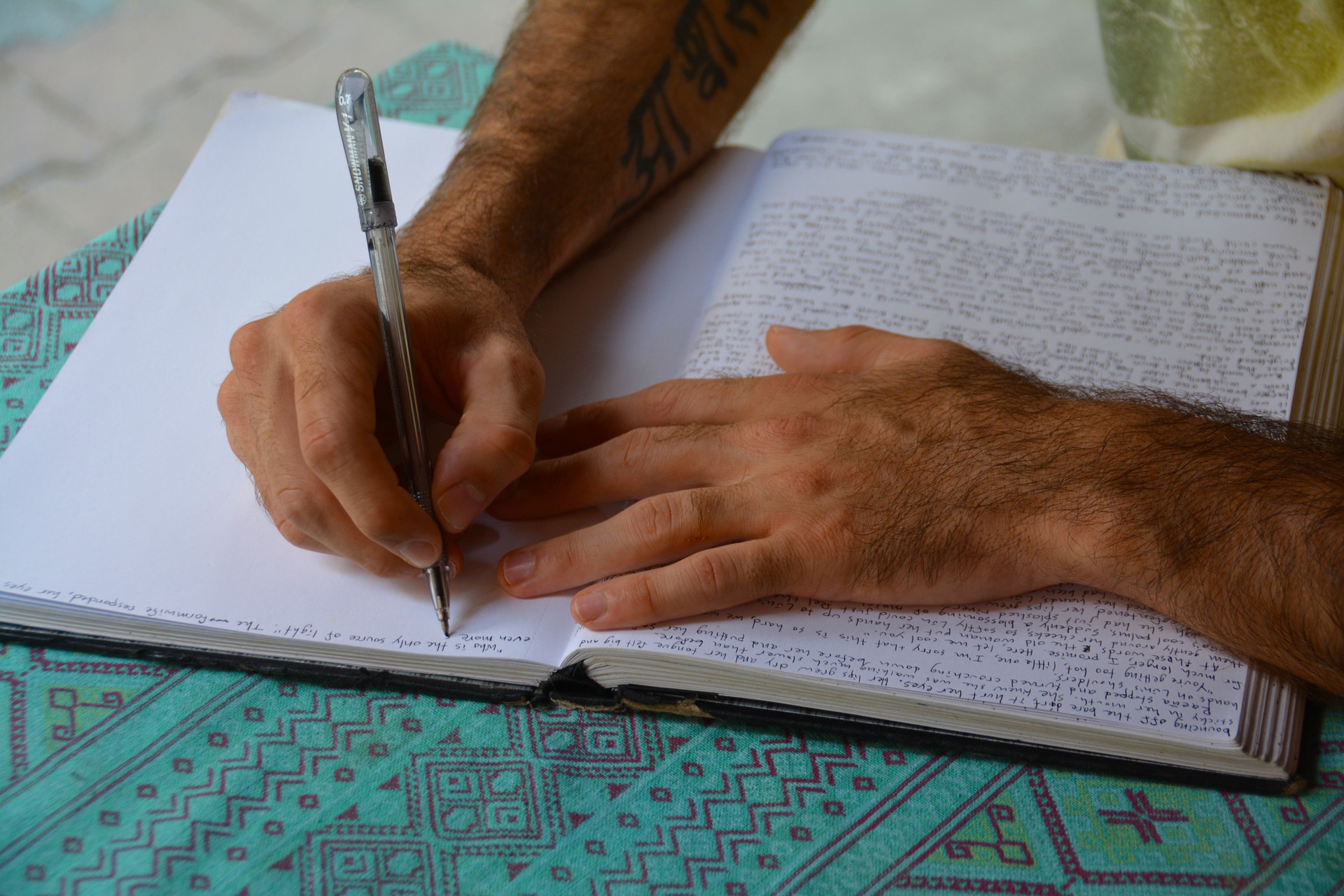Running faster looks like a good idea - until you realise you are getting faster to where you don't really want to go.
It is important therefore to slow down occasionally - to take time to look around and see if you are on the right track - if you are headed in the direction you desire. Sometimes, you have to slow down to move faster.
The year end is a good time to do this. The prevailing holiday mood, few or no meetings, fewer emails - this is a good time to stop relentlessly forging ahead, and to slow down to an amble and take perspective.
Use the last few days of the year to figure out where you really want to go - in your career, in your relationships, with your health, and every other area in life that is important to you.
In this post, I share 3 simple ways in which you can do this effectively without spending an unreasonable amount of time.
The Wheel of LIfe
A tool like The Wheel of Life can help do this in a more structured and simple way. It is a simple diagram of a wheel with multiple spokes - each spoke representing an important area of life, or a life role (father, partner, friend) - if you prefer.

You start by asking yourself, on a given scale (say 1 to 10), how satisfied you are with where you are in that domain or role of your life. Once you have completed this evaluation, the next question is where do you wish to be in each of those areas. So, for example, if you scored yourself a 8 (out of 10) on Health, are you content with how you are doing, or do you wish to get even better. There are no right answers, and your self-evaluation, and your judgment on where you wish to be, are all that matter.
This exercise reveals gaps and imbalances in your life:
- In any given area, where are you today compared to where you wish to be? The difference is a gap
- Comparing across areas, are there some areas you are neglecting relative to others? This gives you an indication of imbalance
The mere presence of gaps and imbalances does not mean you must act on them. Use your judgment - and determine which gaps you wish to close, and which imbalances you wish to address at this point in time. These set your priorities for the year ahead.
Freeform Writing
Freeform writing can be an effective way to conduct this reflection.
In freeform writing, you allow your thoughts to be captured on paper without any judgment. Like other stream-of-consciousness exercises, it is important not to restrict, edit, or influence your chain of thoughts in the moment.

However, it can be useful to have a list of prompts or questions to jumpstart your thinking. For example, here's a list of questions that I have found useful:
- What areas of life are important to me at this point in time?
- What areas of my life am I paying less attention to today?
- What would paying adequate attention to the important areas of my life look like?
- Is addressing any of the gaps or imbalances particularly important at this time?
- What should I do next?
The trick is to ask yourself the question, and then let your thoughts go wherever they wish - even if it looks like a digression. Eventually, when it feels like your stream of thoughts has dried up, get it flowing again by asking the next question.
Thinking Partners
Thinking aloud, in the presence of a good listener can also be powerful.
In this case, you reflect with some assistance from your thinking partner - who might acknowledge what you say, ask questions (which are often selected and agreed to in advance), or even give feedback (this can be tricky - more about this in a bit).

Sometimes people choose this option because they find talking easier than writing. If you fall in this category, you might wish to consider speech to text apps - which are getting better every day.
Some people find doing this in the presence of another human being easier, while others find it more inhibiting. It also depends on the level of trust and familiarity - though sometimes doing this with a complete stranger can also be quite liberating.
Coming back to the question of feedback - it can be tricky because when you are reflecting on your own life priorities, you might not want others' judgment to cloud your own thinking. So most people who practice this avoid asking or giving feedback in the process.
The best thinking partners ask questions that allow you to reach deeper inside of yourself and uncover motivations and beliefs, which can also be useful when evaluating your priorities. So work with someone who is familiar with the process or willing to learn.
Often, people combine this approach with some other approach - such as Wheel of LIfe or Freeform Writing. . This ensures you have done some of the messy work upfront, and what you bring into the discussion with your thinking partner is good raw material for the process.
When picking a thinking partner to work with, you must consider a few things:
- Pick someone you are comfortable opening up to
- Ensure they can be trusted to maintain confidentiality
- Clarify their expectations, and ensure that you can be a good thinking partner for them if this is a reciprocal arrangement
- Ensure you are both familiar with the process and know, maintain and respect boundaries
You can of course choose to work with a professional - like a coach or a paid mentor or advisor - which largely addresses most of the above issues. And they will often guide or facilitate you through the other two approaches (Wheel of Life or Freeform Writing) as well.
Any of these three approaches can be effective - by itself or combined with one of the others. Pick one, any one, and spend time clarifying what you really want. This will help you be better prepared to face the opportunities and challenges the new year brings.
Sometimes, you have to slow down to move faster.
